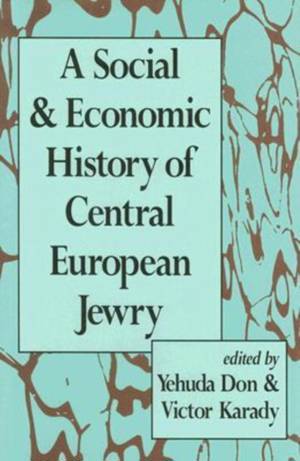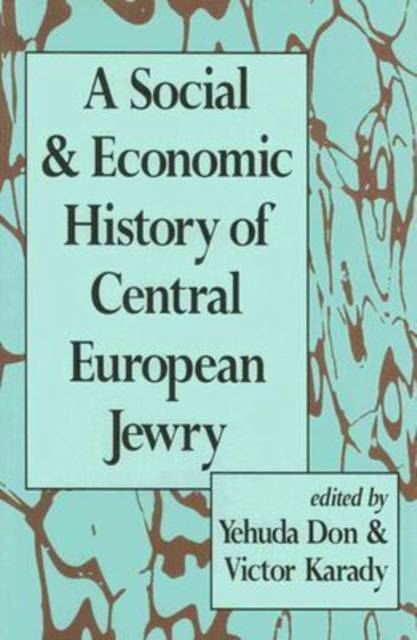
- Retrait en 2 heures
- Assortiment impressionnant
- Paiement sécurisé
- Toujours un magasin près de chez vous
- Retrait gratuit dans votre magasin Club
- 7.000.0000 titres dans notre catalogue
- Payer en toute sécurité
- Toujours un magasin près de chez vous
195,95 €
+ 391 points
Description
This volume is a pioneering effort to examine the social, demographic, and economic changes that befell the Jewish communities of Central Europe after the dissolution of the Habsburg Empire. It consists of studies researched and written especially for this volume by historians, sociologists, and economists, all specialists in modern Central European Jewish affairs.The era of national rivalry, economic crises, and political confusion between the two World Wars has been preceded by a pre-World War I epoch of Jewish emancipation and assimilation. During that period, Jewish minorities had been harbored from violent anti-Semitism by the Empire, and they became torchbearers of industrialization and modernization. This common destiny encouraged certain common characteristics in the three major components of the Empire, Austria, Hungary, and the Czech territories, despite the very different origins of the well over one million Jews in those three lands.The disintegration of the Habsburg Empire created three small, economically marginal national states, inimical to each other and at liberty to create their own policies toward Jews in accord with the preferences of their respective ruling classes. Active and openly discriminatory anti-Semitic measures resulted in Austria and Hungary. The only liberal heir country of the Empire was Czechoslovakia, although simmering anti-Semitism and below surface discrimination were widespread in Slovakia. While one might have expected Jewish communities to return to their pre-World War I tendencies to go their independent ways after the introduction of these policies, social and economic patterns which had evolved in the Habsburg era persisted until the Anschluss in Austria, German occupation in Czechoslovakia, and World War II in Hungary. Studies in this volume attest to continuing similarities among the three Jewish communities, testifying to the depth of the Empire's long lasting impact on the behavior of Jews in Central Europe.
Spécifications
Parties prenantes
- Auteur(s) :
- Editeur:
Contenu
- Nombre de pages :
- 270
- Langue:
- Anglais
Caractéristiques
- EAN:
- 9780887382116
- Date de parution :
- 28-02-90
- Format:
- Livre relié
- Format numérique:
- Genaaid
- Dimensions :
- 166 mm x 233 mm
- Poids :
- 598 g

Seulement chez Librairie Club
+ 391 points sur votre carte client de Librairie Club
Les avis
Nous publions uniquement les avis qui respectent les conditions requises. Consultez nos conditions pour les avis.






